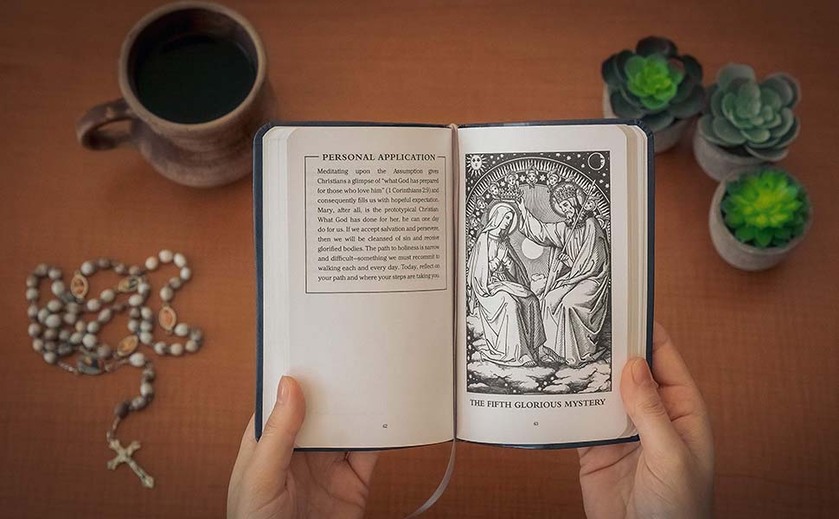Over the past several months, I’ve rediscovered a real love for the Holy Rosary. It’s sometimes written off as rote prayer — something mechanical, a prayer without heart. But that couldn’t be further from what it’s meant to be. The Rosary actually weaves together vocal, mental, and contemplative prayer in a way that’s both incredibly simple and surprisingly profound.
My friend Mark Hart said something about the Rosary that really stuck with me: “It’s a Bible study on beads.” And he’s right. With every decade, you’re walking through the life of Our Lord Jesus and His Blessed Mother, meditating on their joys, sorrows, and triumphs. It’s become a beautiful, daily way to step out of the noise, slow down, and refocus my attention on the Word of God and the presence of God.
With that in mind, I scoured the internet (and a few dusty bookshelves) to find 10 incredible quotes from the saintsabout the power and beauty of the Rosary. My hope is that these will inspire you to pick up the beads again if you’ve fallen out of the habit — or maybe just reignite your devotion if you’ve been coasting a bit.
1. St. Louis de Montfort
"If you say the Rosary faithfully until death, I do assure you that, in spite of the gravity of your sins, you shall receive a never-fading crown of glory. Even if you are on the brink of damnation, even if you have one foot in hell, even if you have sold your soul to the devil, sooner or later you will be converted and will amend your life and save your soul if — and mark well what I say — if you say the Rosary devoutly every day until death for the purpose of knowing the truth and obtaining contrition and pardon for your sins."
2. St. Padre Pio
"Some people are so foolish that they think they can go through life without the help of the Blessed Mother. Love the Madonna and pray the Rosary, for her Rosary is the weapon against the evils of the world today. All graces given by God pass through the Blessed Mother. You must always hold fast to the Rosary. When you do so, the Blessed Mother will wrap you in her mantle and draw you closer to the Sacred Heart of her Son."
3. St. John Paul II
"The Rosary, though clearly Marian in character, is at heart a Christocentric prayer. In the sobriety of its elements, it has all the depth of the Gospel message in its entirety, of which it can be said to be a compendium. With the Rosary, the Christian people sit at the school of Mary and are led to contemplate the beauty on the face of Christ and to experience the depths of his love. Through the Rosary the faithful receive abundant grace, as though from the very hands of the Mother of the Redeemer."
4. St. Dominic
"One day, through the Rosary and the Scapular, Our Lady will save the world. The Rosary is the most powerful weapon to touch the Heart of Jesus, our Redeemer, who loves His Mother. If you wish to reach these hardened souls and win them over to God, preach my Rosary. My dear children, let your heart hold fast to this gift of Our Lady. By this devotion, you shall conquer the enemies of God and draw down abundant graces for the conversion of sinners."
5. St. Teresa of Calcutta (Mother Teresa)
"Cling to the Rosary as the creeper clings to the tree — for without Our Lady we cannot stand. The family that prays together, stays together, and if you want peace in your heart and your home, pray the Rosary every day. Our Lady has never refused me anything I have asked through the Rosary. She is our tender Mother, eager to grant all we need if only we will come to her with trust and love."



















